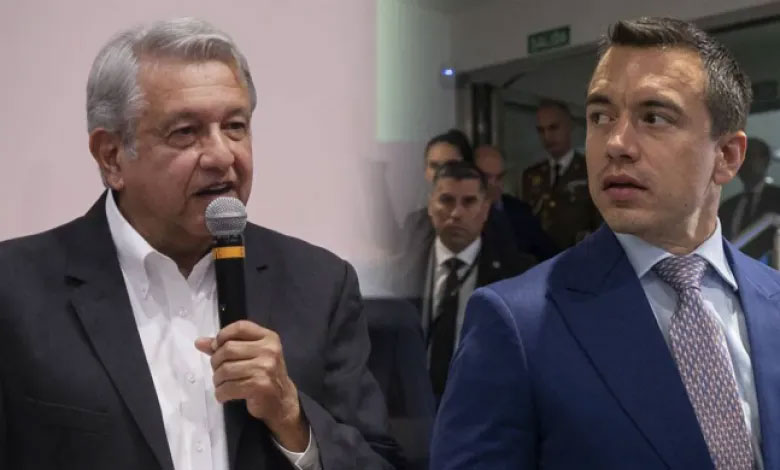Analysts cautiously suggest that the diplomatic collapse between Ecuador and Mexico will have a minor impact on trade.
Diplomatic tensions between Ecuador and Mexico escalated following the arrest of former vice president Jorge Glas within the Quito embassy premises. This incident, occurring on the night of Friday, April 5, has ramifications beyond the diplomatic arena, extending into the commercial sphere. Such tension has put various industries and export sectors on edge, especially those reliant on trade with Mexico and organizations facilitating Ecuadorian investments in international markets, including Mexico.
In 2023, trade between Ecuador and Mexico yielded a deficit for Ecuador, as reported by the Central Bank of Ecuador (BCE). According to a study by the Ecuadorian Federation of Exporters (Fedexpor), non-oil trade left Ecuador with an unfavorable balance of $499 million. Importantly, imports from Mexico amounted to $701 million, surpassing Ecuadorian exports valued at $202 million in 2023, reflecting a 9% increase compared to the previous year.
When examining the economic profiles of Ecuador and Mexico, significant disparities emerge. Ecuador’s gross domestic product (GDP) stands at $118.845 billion, as per the latest data from the BCE, whereas Mexico boasts a substantially larger GDP of $1.663 trillion.
Mexico emerged as the eighteenth largest destination market for Ecuadorian non-oil exports in the preceding year, with over 320 export products and more than 260 companies engaged in exports to Mexico. Noteworthy export items include cocoa beans, minerals, food preparations, plastics, and sugar-related products, which collectively account for 73% of Ecuador’s non-oil exports to Mexico.
For instance, cocoa beans constituted the leading Ecuadorian export to Mexico in 2023, generating approximately $60 million in foreign exchange, with additional revenue from derivative products.
Concerns form exporters
However, the recent diplomatic strain has raised concerns among exporters. Merlyn Casanova, executive director of the National Association of Cocoa Exporters of Ecuador (Anecacao), expressed apprehension regarding potential repercussions on cocoa exports, emphasizing the need to monitor the situation closely to assess any commercial impacts.
Conversely, Ecuador’s imports from Mexico primarily consist of pharmaceuticals, machinery, vehicles, electrical equipment, and cosmetics, with these top five products constituting 57% of non-oil imports. Notably, around 55% of Ecuador’s non-oil imports from Mexico serve as inputs for domestic production.
The Binational Chamber of Commerce Ecuador – Mexico has been actively monitoring the situation. Although hesitant to provide immediate commentary, its executive director, Alexandra Mosquera, indicated that no significant commercial changes had been reported as of yet.
Past negotiations for a trade agreement between Ecuador and Mexico faced obstacles, particularly regarding the exclusion of Ecuadorian bananas and shrimp, which prevented Ecuador from joining the Pacific Alliance fully. The failure to finalize such agreements underscores the complexities in bilateral trade relations.
Eduardo Egas, executive president of the Export and Investment Promotion Corporation (Corpei), downplayed the immediate commercial impact, citing Ecuador’s relatively modest trade dependency on Mexico compared to other nations. However, he raised concerns about the potential disruption to investments, particularly from Mexico, and the implications for existing Mexican investors in Ecuador.
Egas also drew attention to the significant presence of Mexican organized crime in Ecuador, highlighting the substantial flow of illicit funds between the two countries. He cautioned that diplomatic strains could disrupt collaborations in combating organized crime, potentially affecting both countries’ security interests.


0 Comments